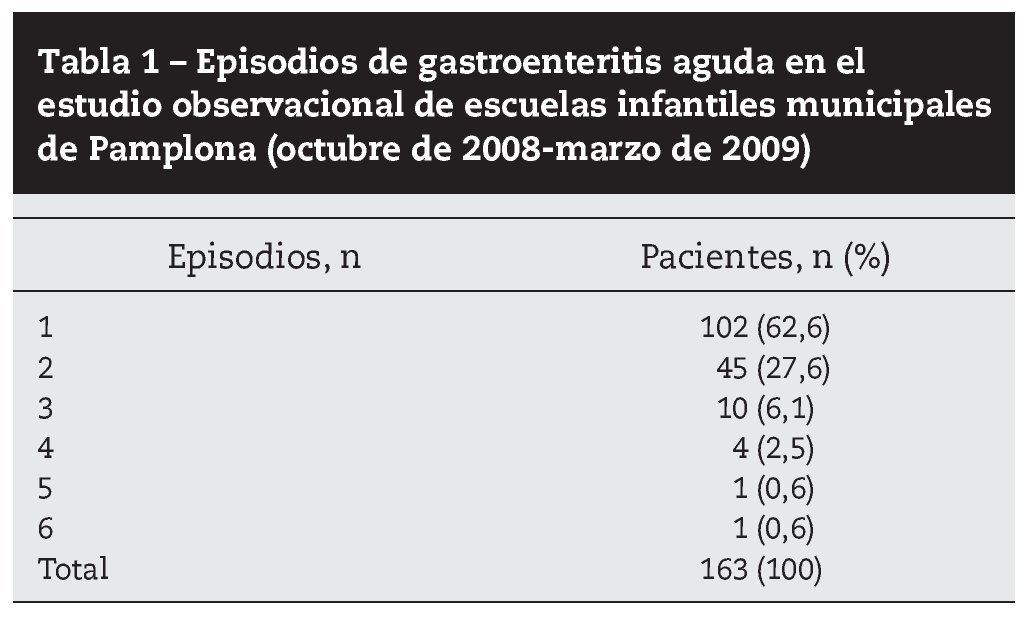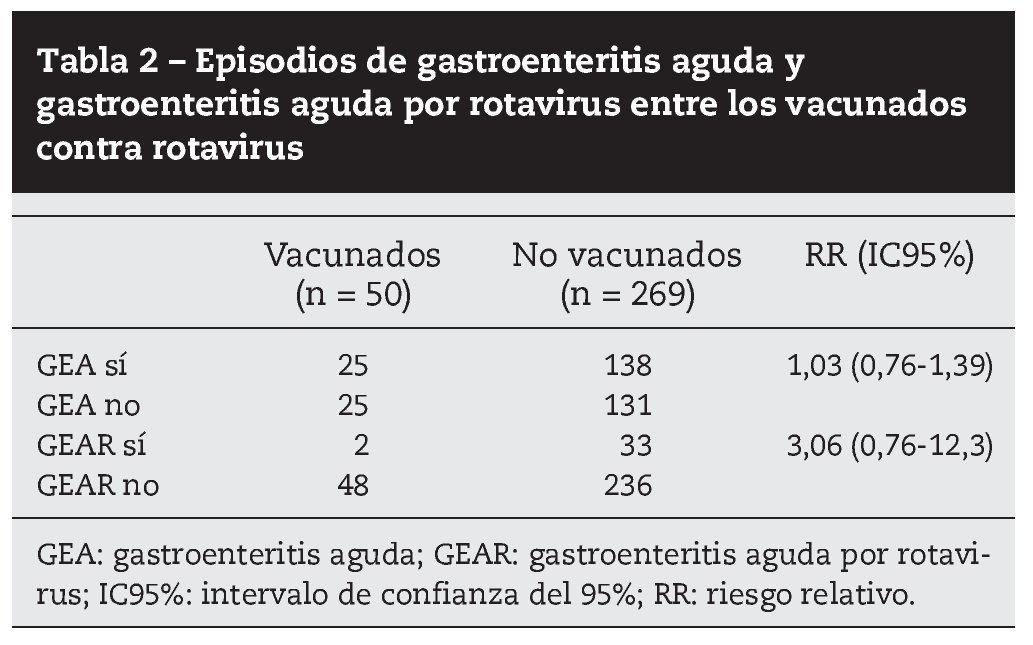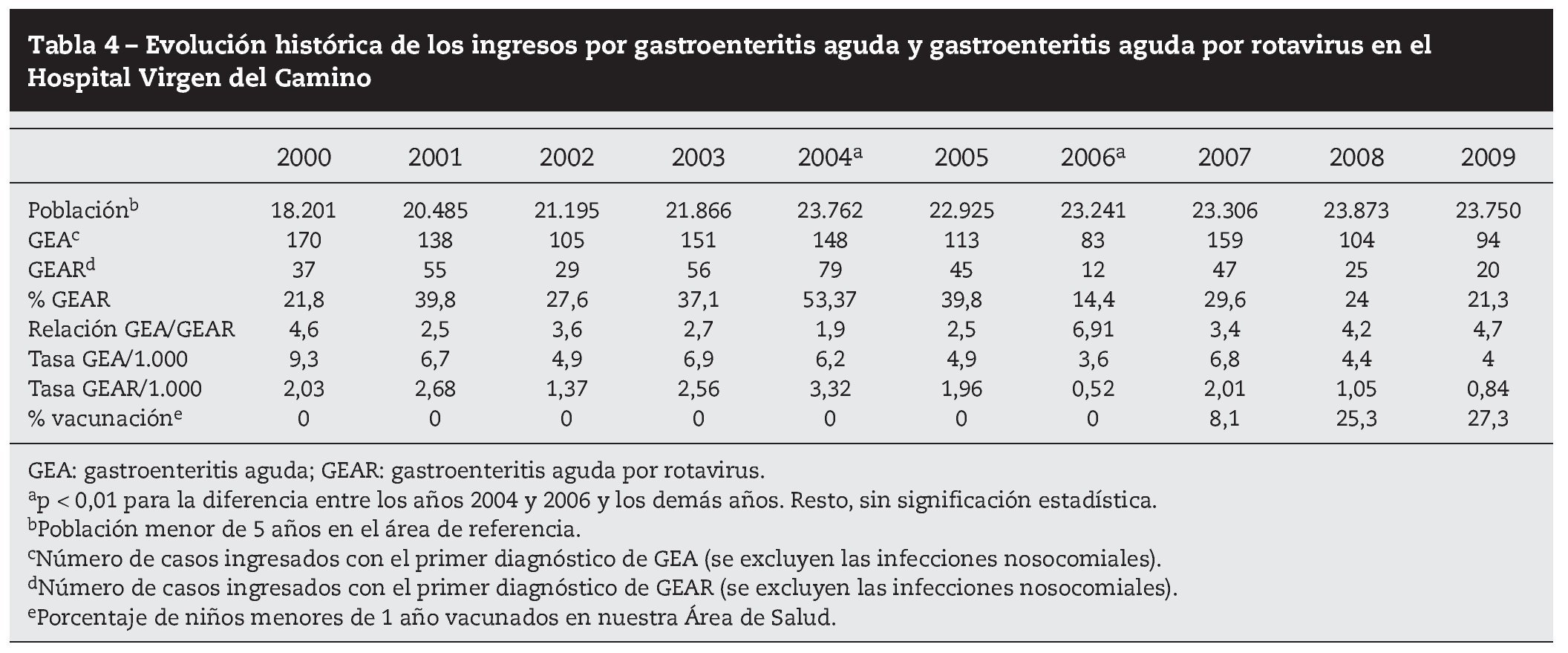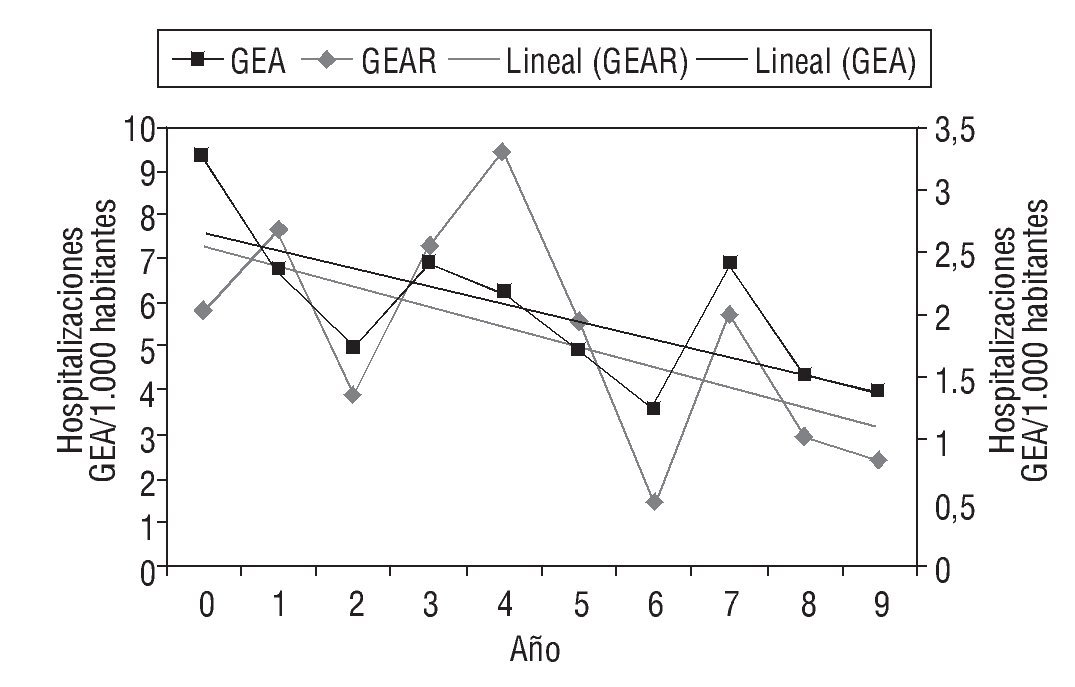Objetivos: Describir la epidemiología de la gastroenteritis aguda por rotavirus (GEAR) en las escuelas infantiles municipales (EIM) de Pamplona de octubre de 2008 a marzo de 2009 y la incidencia de ingresos por dicha enfermedad en el hospital de referencia, el Hospital Virgen del Camino.
Métodos: Estudio epidemiológico, observacional prospectivo desarrollado en 9 EIM de Pamplona (edad, 4-24 meses) entre octubre de 2008 y marzo de 2009. Se registraron todos los episodios de gastroenteritis aguda y se investigó la presencia y los genotipos de rotavirus. En el mismo periodo se registraron las GEAR que precisaron ingreso en el hospital de referencia del Área de Salud de Pamplona, el Hospital Virgen del Camino. Se realizó estudio retrospectivo de los ingresos por GEAR desde 2000 a 2009 en ese centro.
Resultados: Se siguió a 319 niños de entre 4 y 24 meses de edad, y se registraron 249 episodios de gastroenteritis aguda en un total de 163 niños. Se identificó rotavirus en el 14% de las muestras recogidas. La combinación de genotipos más frecuente fue G1 [P8] (83%). Ninguna de las gastroenteritis agudas detectadas en las EIM originó ingreso hospitalario. En ese periodo la incidencia de hospitalizaciones por GEAR fue de 2,44/1.000 habitantes, una de las más bajas entre 2000 y 2009.
Conclusiones: El rotavirus sigue siendo un agente etiológico frecuente en los episodios de gastroenteritis aguda en las escuelas infantiles y es una de las principales causas de ingreso por gastroenteritis aguda en un hospital terciario de referencia durante los meses de octubre a marzo.
Objectives: To describe the epidemiology of rotavirus acute gastroenteritis (RAGE) in municipal kindergartens in Pamplona during the 2008-09 rotavirus season and hospital admissions due to RAGE in the reference hospital of the health area of Pamplona, Hospital Virgen del Camino.
Methods: Epidemiological, observational, prospective study in children aged 0-36 months in municipal kindergartens in Pamplona between October 2008 and March 2009. We recorded all episodes of acute gastroenteritis, studying the presence of and genotypes of rotavirus. During the same period of time, RAGE episodes requiring hospital admission to the Hospital Virgen del Camino were recorded. Hospital admissions due to RAGE from 2000 to 2009 were studied retrospectively.
Results: 319 children aged 4-24 months were included in the observational study, with 249 episodes of acute gastroenteritis being recorded in 163 children. Rotavirus was isolated in 14% of the samples. The most frequent genotype was G1 [P8] (83%). No case of acute gastroenteritis detected in kindergartens led to admission to the Hospital Virgen de Camino. The incidence of hospital admissions due to RAGE during the study period was 2.44/1000 inhabitants, one of the lowest incidences between 2000 and 2009.
Conclusions: Rotavirus continues to be a frequent agent in episodes of acute gastroenteritis in preschool infants and one of the most important causes of admission due to acute gastroenteritis to a tertiary reference hospital in the months between October and March.
Artículo
Comprando el artículo el PDF del mismo podrá ser descargado
Precio 19,34 €
Comprar ahora










